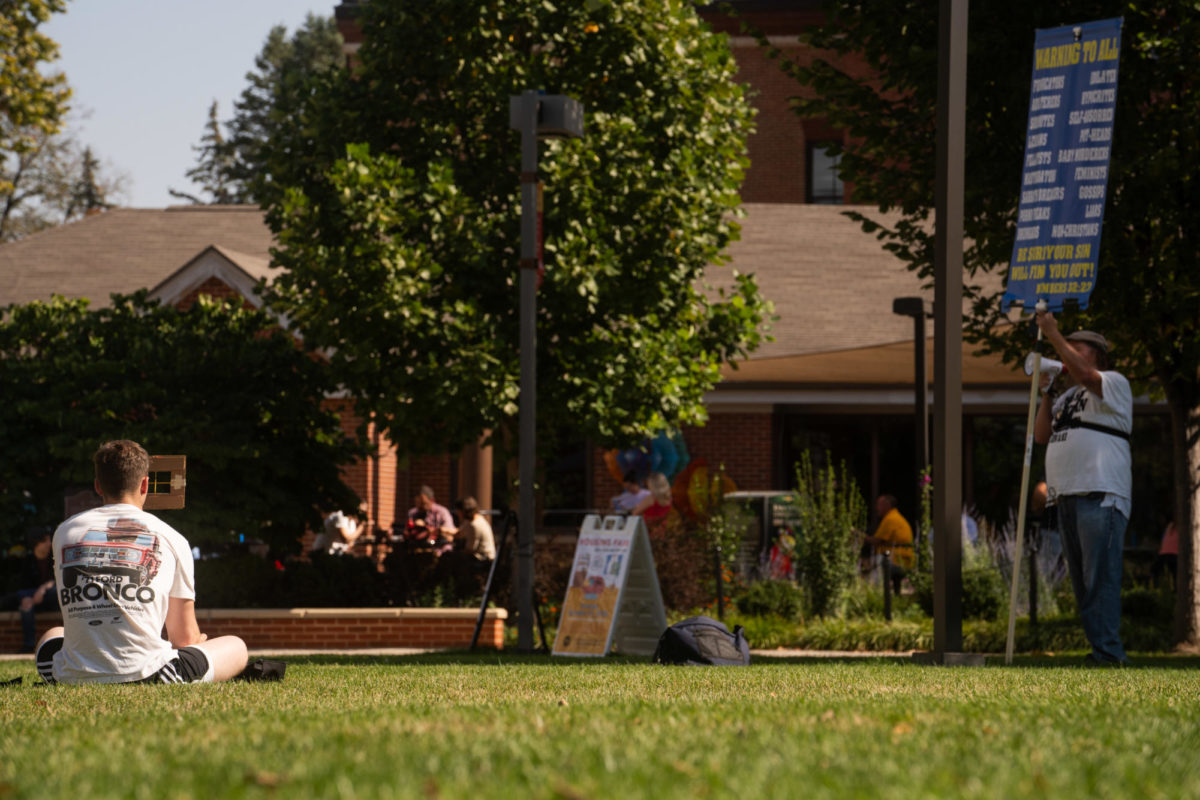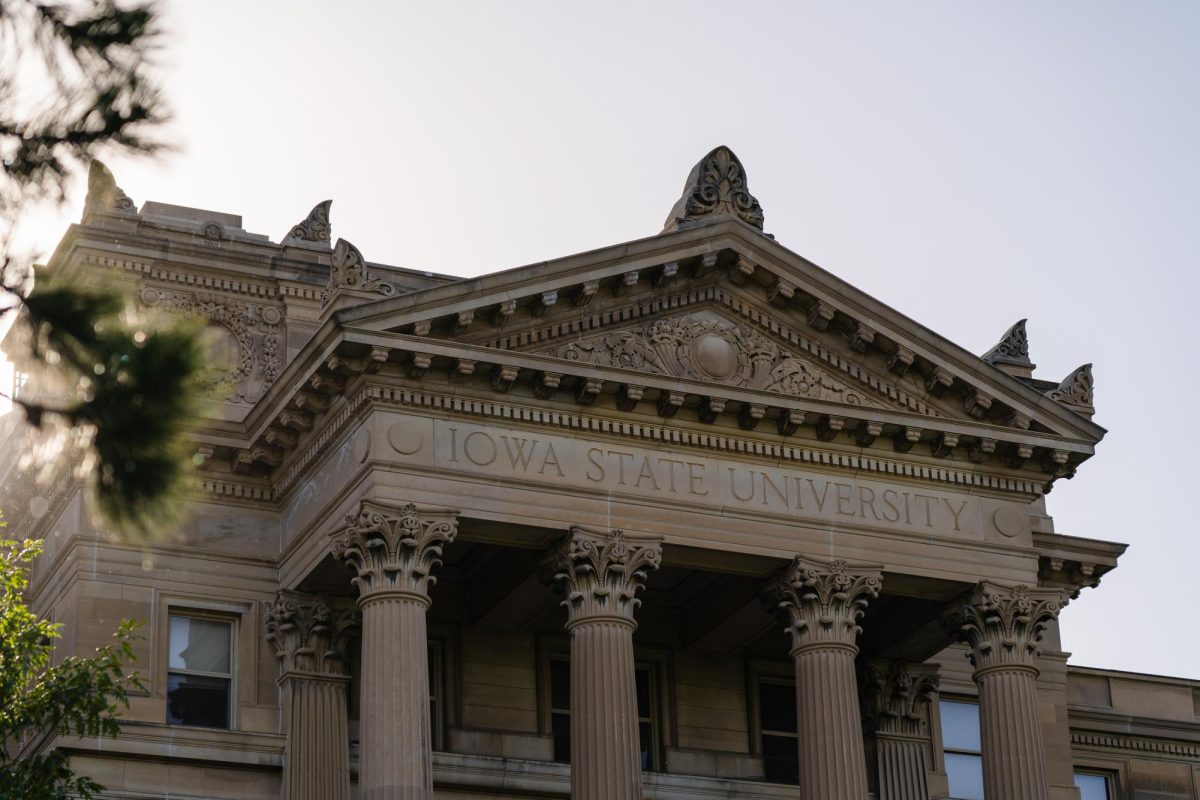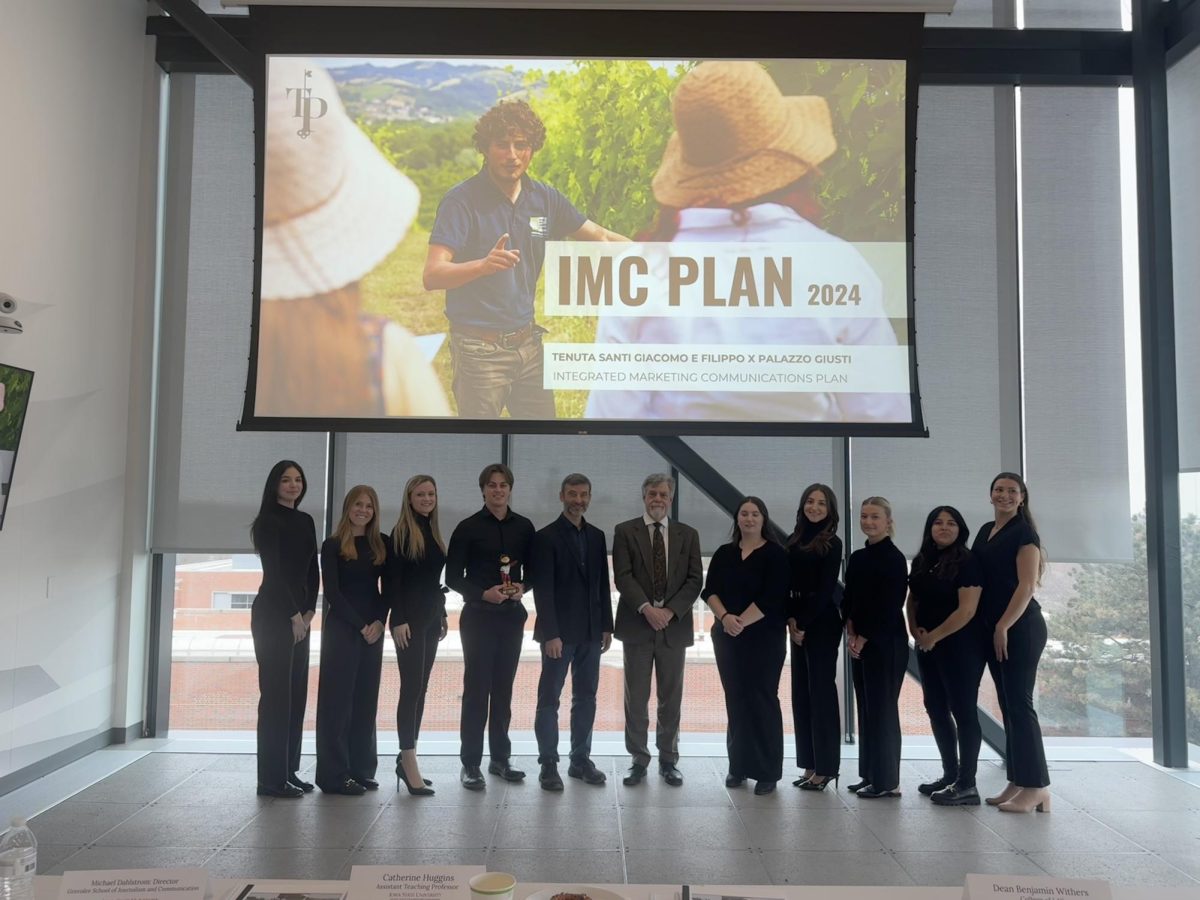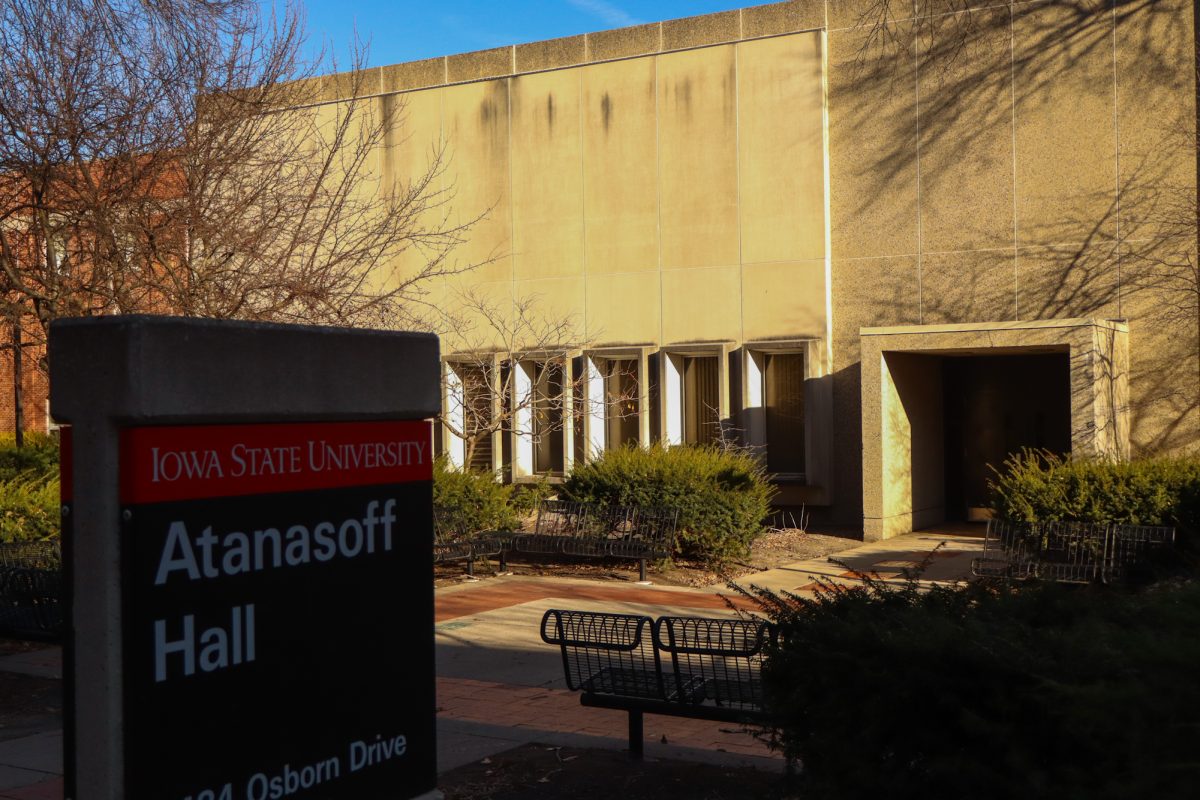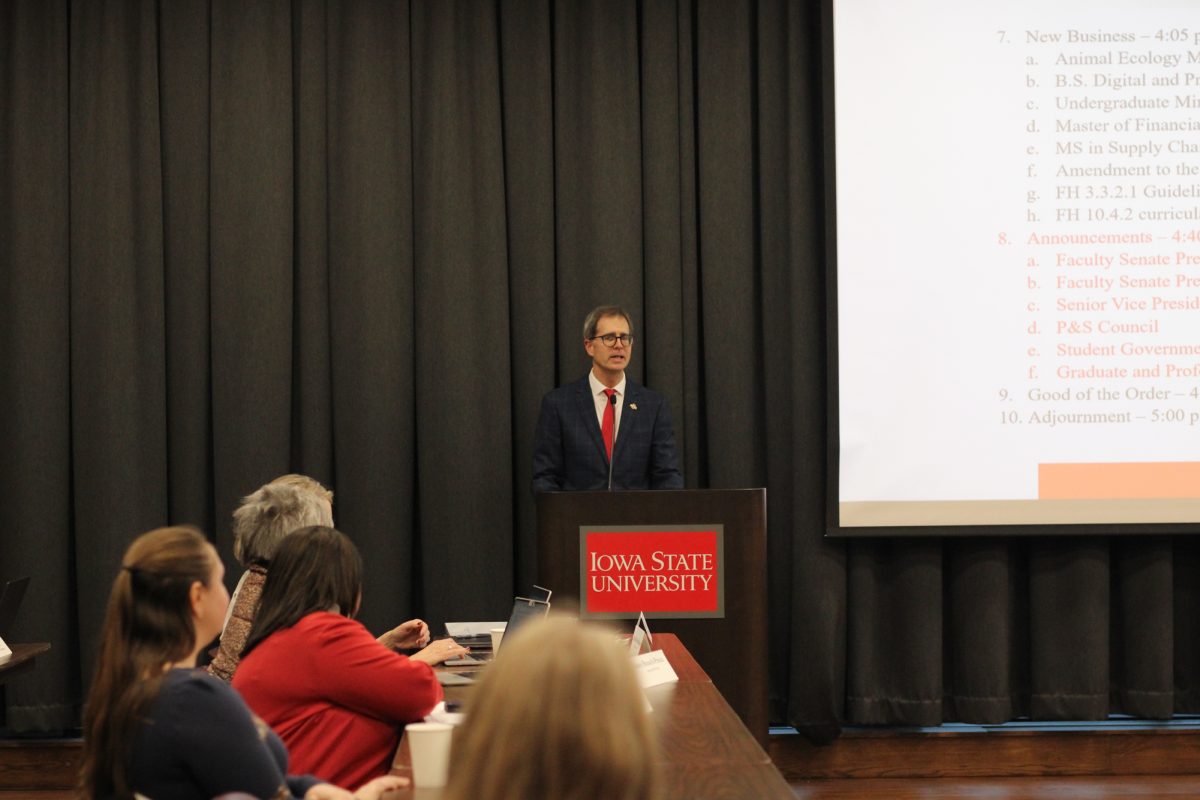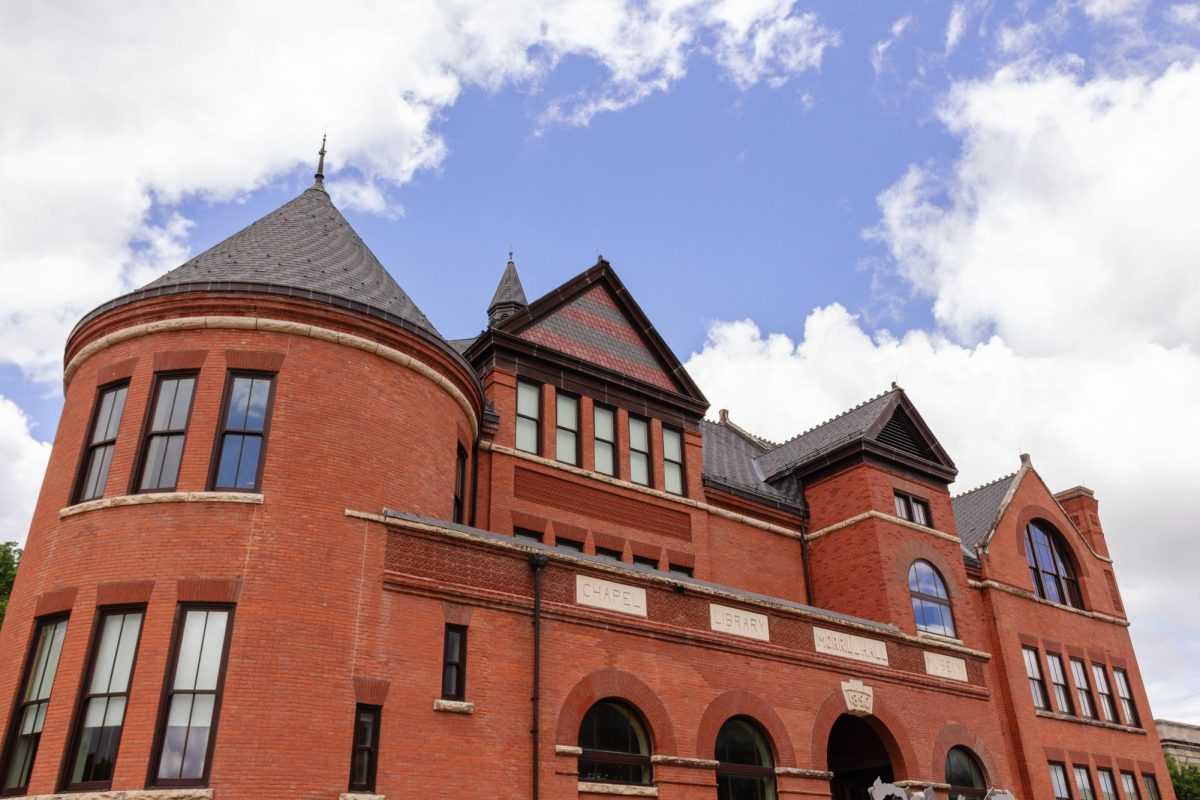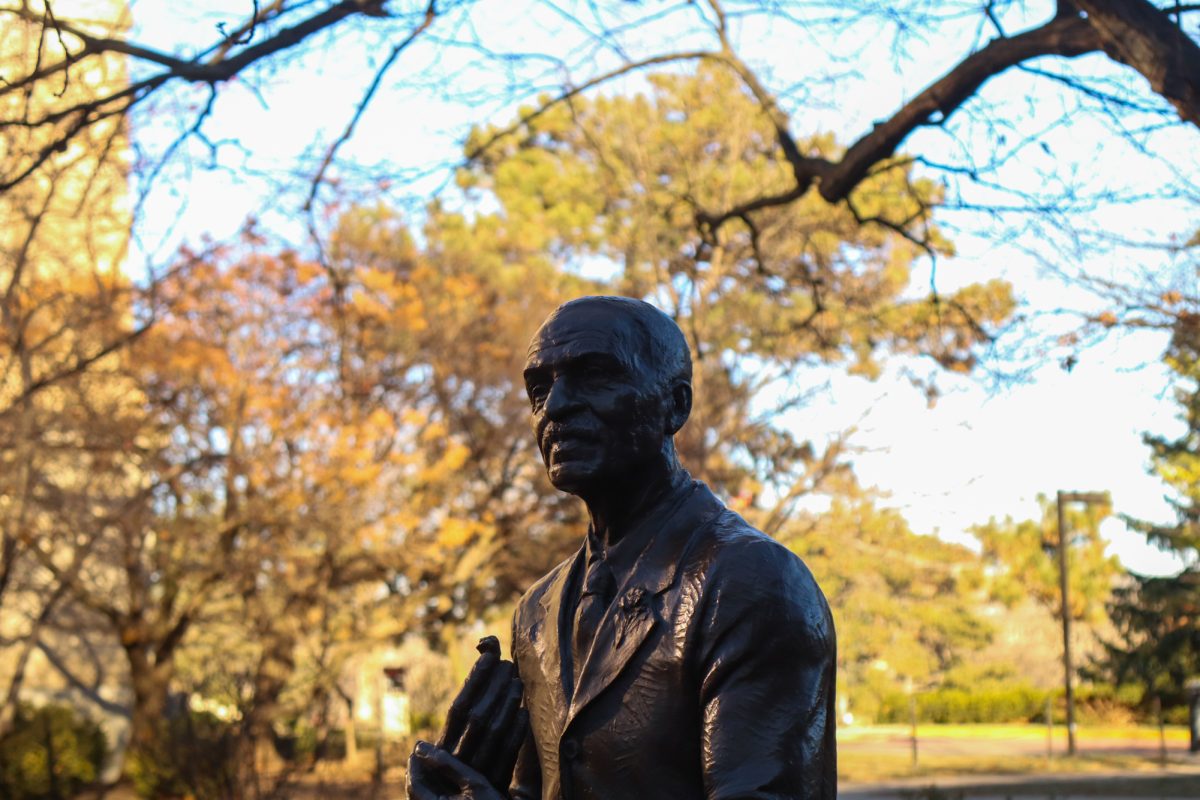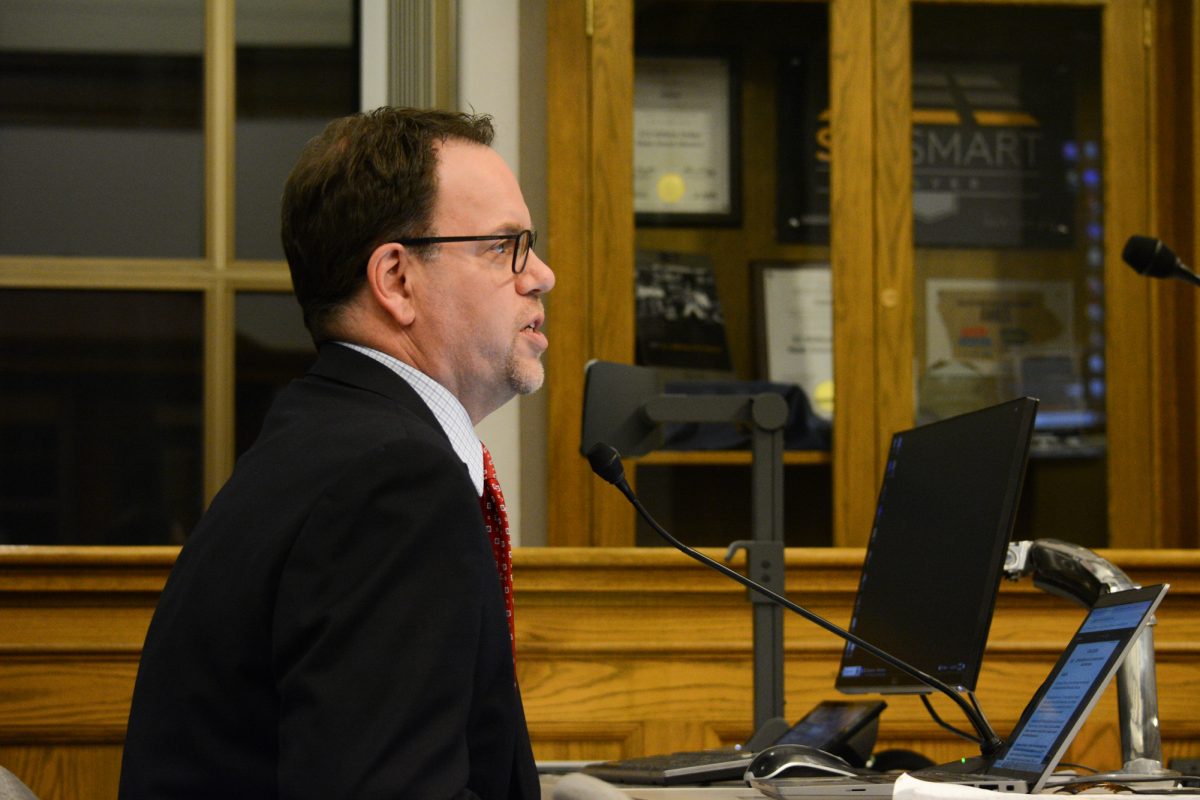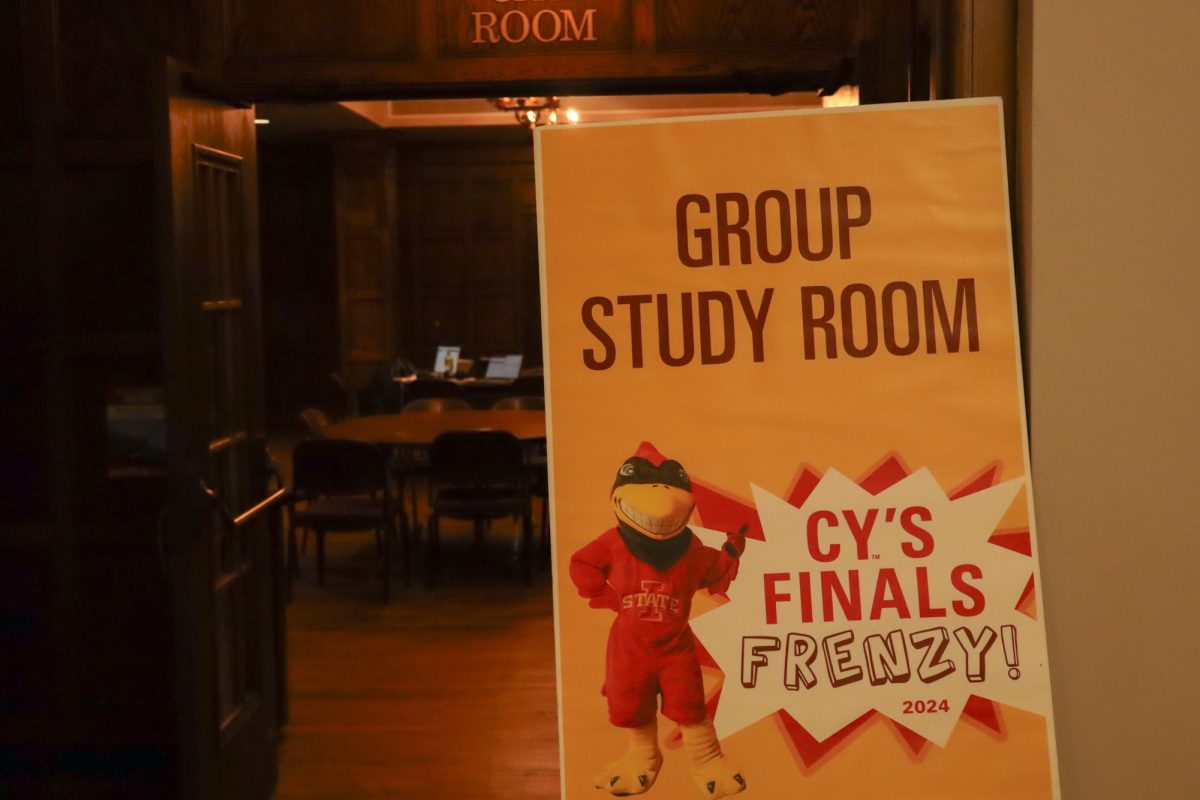Faculty and students at each Iowa regent institution will be asked to complete a free speech survey, set to be emailed out Wednesday by the Iowa Board of Regents.
The survey is managed by the Free Speech and Student Affairs Committee of the Board of Regents, a committee formed in 2020 and charged with evaluating board policy and best practices, according to Josh Lehman, senior communications director for the board.
“The results will help both the board and universities understand perceptions of free speech on our campuses, and how we can improve to strengthen our commitment to the First Amendment,” Wendy Wintersteen and other senior campus leaders stated in the university-wide email.
The survey, which remains the same as the original issued in 2021, will ask students and faculty to rate on a Likert scale how they feel about free speech-related topics and scenarios.
In 2021, the survey found 73% of students felt the university provides an environment for free and open expression of ideas, opinions and beliefs.
56% of students reported their campus environment provided a place where they could say things they believe but may be considered offensive by some according to the 2021 survey.
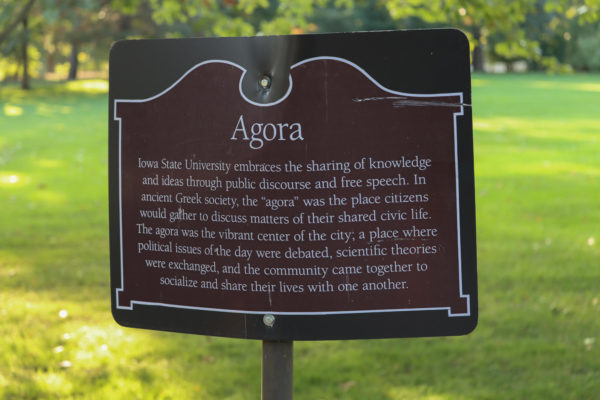
“The protections afforded by the First Amendment are core values of Iowa State University,” Wintersteen stated in the university-wide email.
Iowa State saw the highest rate of student responses of the three regent institutions, with 10.3% of students responding to the 2021 survey. Faculty at the University of Northern Iowa (UNI) responded at a rate of 0.1% more than Iowa State faculty in 2021, with Iowa State faculty responding at a rate of 47.5% and UNI faculty at 47.6%.
The survey will take five minutes to complete, according to a university-wide email from Wintersteen and other university administrators.
Respondents should take the survey by March 1. Results of the 2024 survey will be available at the April board meeting, according to Lehman.
Results are reported anonymously and will be compiled in group form only, according to Lehman.
Development
The survey was developed by a “cross-institutional group of university researchers and other administrators” who worked with board office staff, according to Lehman.
The cross-institutional group and board staff researched whether it should develop the survey locally or have it developed by an outside entity.
The survey was developed locally, which was a group decision, according to Lehman.
“The group determined that a locally developed survey would best serve the needs of the universities,” Lehman stated. “This approach helped to ensure it was suitable for students, faculty and staff audiences.”
Lehman stated the group found limited options for nationally normed or commercially available relevant surveys of students, and none for university employees.
Iowa State’s Greenlee School of Journalism and Communication was not contacted to develop the survey, according to Michael Dahlstrom, who has served as the director of the Greenlee School since 2020.
“We were not approached for [developing the survey], and I think because it’s a regents project,” Dahlstrom said. “At the Board of Regents level, I think most of who they got together was probably people high up at each of the three institutions. So even though we do a lot of this stuff, my guess is it was a couple swoops down into each university.”
Greenlee has celebrated First Amendment Days for 21 years, and during the time of the committee deliberating survey options in 2021, it employed a First Amendment specialist who focused on First Amendment issues.
Additional recommendations the committee received in 2021 were:
- Each syllabus will have a statement comparable to the Iowa State statement.
- The syllabus free speech statement will be reviewed at the beginning of each course.
- Reaffirm that university resources will not be used for partisan activities. Registered student organizations and individual students will still be able to utilize university facilities and email.
- The universities may only take an institutional position on policy matters, in conjunction with the Board. This includes presidents, vice presidents, deans and department directors.
- Universities will not permit discrimination or denial of educational benefits because of the viewpoint of a student organization or a student.
- Establish the Free Speech Committee as a permanent committee of the Board of Regents to review free speech complaints passed along by the Executive Director, annually review all free speech policies of the Board and universities, review the university training for improvements and every two years do a survey on free speech to all faculty, staff and students.
- Universities will be required to post the Board’s and university policies and procedures on their webpage, including how to appeal to the Board regarding violations of free expression.
- Universities will be charged with adding policies and procedures, including penalties for violations of free expression to its current process for violations of university or Board policies.
- The Board of Regents will review and compile data from the most recent campus climate surveys and national surveys regarding free speech. The Free Speech Committee will determine if additional survey of all members of each university regarding free speech is warranted during the fall semester 2021. Once completed this information will be presented to the Board.
- Universities will be required to provide training on the free speech to all students, faculty and staff on an annual basis. The presidents will appoint the appropriate campus members to assist the Free Speech Committee to develop a common module for free speech at all three universities.


